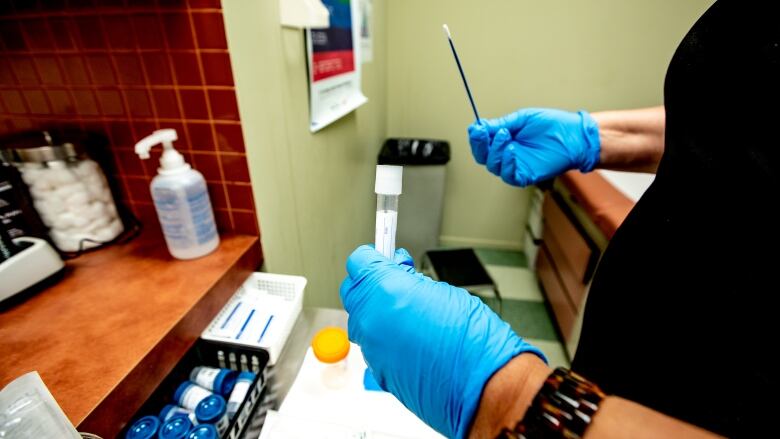Testing for certain sexually transmitted infections resumes in Halifax
Chlamydia, gonorrhea, herpes testing has been paused since November when COVID-19 testing ramped up

Testing for three sexually transmitted infections has restarted in Halifax after a two-month pause.
The pause began when testing for COVID-19 ramped up in November.
"They're the same department,"said Abbey Ferguson, the health promotion co-ordinator and medical office administratorforthe Halifax Sexual Health Centre.
"So chlamydia and gonorrhea are bacterial STIs and HSV[herpes] is a viral STIand they all get tested through the microbiology lab."
Testing for blood-bornesexually transmitted infections like HIV, hepatitis B, hepatitis C and syphilis continued as normal.
Ferguson said the decision to pause testing for chlamydia, gonorrhea and herpes was made by Nova Scotia's health authoritywhen the second wave of the COVID-19 pandemic hit the province.
Testing for the three STIshas been suspended inthe Halifax region since Nov. 27.
Three days prior,37 new cases of COVID-19 were reported in the province the fifth highest single-day increase since the start of the pandemic.
In response, the health authority scaled back lab activity not related to the coronavirus to accommodate the surge in COVID-19 swabs coming in, which includedroutinescreening for some sexually transmitted infections.
Ferguson said although the pause wasn't ideal, it was necessary.
"A lot of testing ... is routine and does come back negative, especially the folks who are with a partner for a long period of time, so I can kind of see their thought process there," she said.
Protection 'much more important'
Rene Ross, a sexual health educator and the executive director of the Sexual Health Centre for Cumberland County, said it's hard to compare the importance of COVID-19 testingwith the importance of STI testing.
"There's a lot of anxiety around an STI testfor a lot of folks... andI think folks think that people aren't having sex or hooking up during the pandemic," Ross said. "And of course, that's not true."
Ross said if testing isn't available, practising safe sex is more important than ever.
"It's so much more important, much more important to put that extra emphasis on protection right now, especially because services are so limited, especially in rural areas," she said.
"And because an STI that goes unchecked can have realserious implications in a variety of ways."
Ferguson said thepause has caused some backlog atthe Halifax Sexual Health Centre.
"We've adapted, but we are definitely busier than we've ever been and we're a busy, busy clinic," she said.
Although testing has started up again, pandemic restrictions still requirepeople to booktelephone appointmentsbefore they can be referred for STI testing at the sexual health centre.
Ferguson said anyone who wants to receive a test must call the centre to set up a telephone appointment.
A statement from the Halifax Sexual Health Centre said STI testing is dependent on the status of COVID-19 in Nova Scotia, soanotherpause in testing could happen again.












_(720p).jpg)


 OFFICIAL HD MUSIC VIDEO.jpg)
.jpg)



























































































